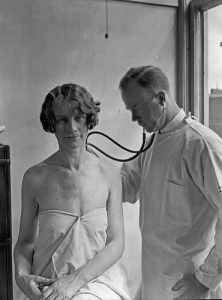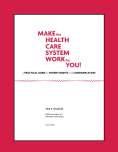After a visit to the doctor, would you like to see his or her notes about the visit?
Looking at the doctor’s own notes might give you a much more informed perspective on your health status. For example, you might then understand why the doctor asked you certain questions, or you might learn how your health may be changing. But, seeing the doctor’s notes also might confuse you, worry you, or needlessly anger you:
- confuse you, because doctors of course use highly technical terms that most of us don’t understand, and their notes assume a working knowledge of medical concepts
- worry you, because the doctor might mention the possibility of scary diseases or conditions, which you almost certainly don’t have, and
- anger you, because you may react to abbreviations or terms that mean something very different from what you think they mean.
A new demonstration project, called OpenNotes, is examining how patient access to doctors’ notes will affect health in three communities. Although barely begun, the project already has received attention in the Wall Street Journal and in a highly respected medical journal, the Annals of Internal Medicine.
One reason for so much attention is that the project cracks open the safe of physician-to-physician communication. Assume you’re a lawyer, business person, teacher, or police officer. How would you like your client, consumer, student, or citizen-complainant to see your notes?
Or, consider this week’s big news story: the leaking of thousands of military and intelligence documents about the Afghanistan War. National security experts worry that these unfiltered notes easily can convey false impressions or magnify the importance of casual, unconfirmed observations.
Certainly, those physicians voluntarily participating in this project deserve high marks for courage. But what about the patients?
A few patients in the OpenNotes project appear to be using the notes as a jumping-off place for conducting lots of Internet research on their possible diseases or conditions. As we describe in our book, in Section 4 on “Doing Your Own Research,” looking up some information on the Web can be tremendously helpful. If unchecked, it also can become an obsession.
What’s most encouraging about this project–led by longtime advocate of better medical care Tom Delbanco MD, and funded by the Robert Wood Johnson Foundation in Princeton, N.J.–is that it’s shining a light on physician-patient communication.
Sharing physician notes may or may not turn out to be a great way to improve communication and produce better outcomes of care. But it surely gives doctors, patients, and health experts an opening to discuss how physicians and patients can exchange ideas and information more effectively.
Take care.
Photo credit: Seattle Municipal Archives. Attribution.


